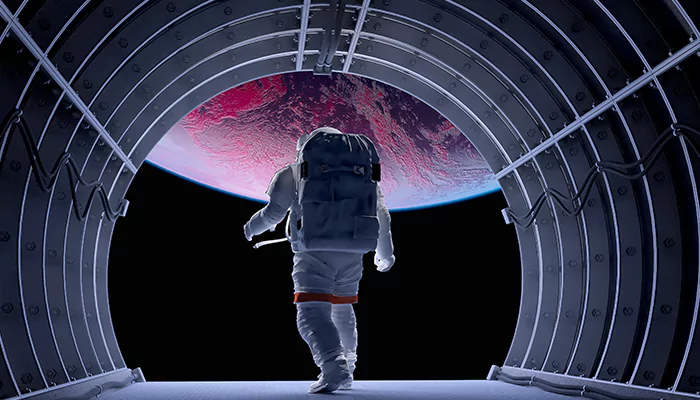Space tourism: How it will become a big thing in the future
Space tourism is the act of traveling into space for the sole purpose of having a recreational experience
- Shriparna
- 20 September, 2024
- 2 mins ago

Space tourism: How it will become a big thing in the future
Space tourism is the act of traveling into space for the sole purpose of having a recreational experience
Since the first human spaceflight took place more than 60 years ago, the future of space travel has been written. Although many people still dream of experiencing space travel, the reality of this scenario is still far away. Space tourism has been around for two decades, and even though the technology used to transport people has changed, it still remains a fantasy.
What is space tourism all about
Space tourism is the act of traveling into space for the sole purpose of experiencing a recreational experience. It can be referred to as private spaceflight, commercial spaceflight, or citizen space exploration. These types of trips are usually conducted for individuals who are willing to travel beyond Earth’s orbit.
What is the history of space tourism: How it started and by whom
During the 1990s, the concept of space tourism started to take off. During this period, a private company from Russia called MirCorp partnered with an American firm known as Space Adventures Ltd. to establish a space tourism company. The goal of the company was to generate revenue for the maintenance of the space station.
Following this mission of Tito, commercial space travel continued to grow. In 2002, Mark Shuttleworth became the first South African to travel to the International Space Station.
In 2010, the Russian Space Agency officially ended its space tourism operations. Since then, various private companies have started to explore the possibility of launching their own space missions.

What is the future of space tourism
According to a study conducted by Northern Sky Research, about 60,000 people are expected to travel into space within the next 10 years. The company noted that the total income generated from this type of space travel will be around 20 billion US dollars.
Will space tourism be affordable ever?
Although it is still not feasible for everyone to experience space travel, the potential of this industry has been estimated to have a positive impact on various socio-economic processes on Earth. By making space travel more accessible to the general public, this type of activity will stimulate innovation and increase the scale of opportunity on Earth.
Nevertheless, despite the prospects, this industry required much risk assessment as heavy workloads and zero-gravity conditions greatly affect passenger health or will significantly increase the number of rocket launches meaning an increase in environmental hazards like emissions, spills, fuel leaks, etc.










